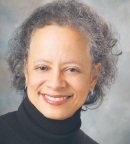Findings from ASCO’s fourth annual National Cancer Opinion Survey showed the toll the COVID-19 pandemic is taking on patients with cancer and the concerns over delays in scheduling cancer screenings. In addition, a majority of survey respondents acknowledged that racism can impact the care a person receives, and more than half said Black Americans are less likely to have access to the same quality cancer care as their White counterparts. However, fewer than one in five believed race has an impact on the likelihood a person will survive cancer. This is despite evidence that Black patients have the highest death rate and shortest survival of any racial group for most cancers.
“Racism undermines public health, and it specifically affects patients with cancer,” said ASCO President Lori J. Pierce, MD, FASTRO, FASCO, in a statement. “For almost every cancer, Black Americans fare worse than other racial groups. Now is the time to address the systemic issues of health inequity that negatively impact the health of Blacks and other people of color in our country.”

Lori J. Pierce, MD, FASTRO, FASCO
How the Survey Was Conducted
ASCO’s National Cancer Opinion Survey is a large, nationally representative survey conducted by The Harris Poll. This year’s survey was conducted online from July 21 to September 8, 2020. All United States residents age 18 and older were eligible to participate in the survey. Among the 4,012 total respondents, 1,142 adults surveyed currently have or have had cancer.
“This survey assesses Americans’ perceptions of a wide range of cancer prevention and care issues during a most turbulent time in our country,” said Dr. Pierce. “We set out to capture Americans’ views during a time of both a devastating pandemic and a national movement for racial justice. Our goal is to better understand public perceptions and address urgent needs and opportunities.”
Key Findings
The Pandemic’s Toll on Patients, Delays in Cancer Screenings, and Attitudes About Cancer Prevention
- Most patients (81%) reported limiting their contact with others over fear of contracting COVID-19, and 6 in 10 patients with active cancer (58%) said they have had to make many sacrifices in their daily life because of their heightened risk of being infected with the virus.
- Nearly 64% of respondents reported delayed or cancelled routine cancer screening tests because of the pandemic. Among those who delayed or cancelled their screening, 66% of the time, it was the patient who chose to delay or cancel the test.
- More than 6 in 10 respondents (63%) who delayed or skipped their appointment(s) are concerned about being behind on their cancer screenings.
- Despite this concern, fewer than half of Americans reported that they take important preventive actions to reduce their cancer risk, including using sunblock (48%), maintaining a healthy weight (47%) and limiting alcohol consumption (42%).
Awareness That Health Inequities Exist Varies Across Races
- Nearly 3 in 5 respondents (59%) agreed that racism can impact the care a person receives within the U.S. health-care system. About half of respondents (53%) said that Black Americans are less likely to have access to the same quality cancer care as White Americans. Despite this, only 24% said that a person’s race affects the likelihood they will get the best possible cancer care, and only 19% reported believing that race has an impact on a person’s likelihood of surviving cancer.
- Non-White adults were more likely to agree that racism can impact health care: 76% of Black respondents, 70% of Hispanic respondents, and 66% of Asian respondents agreed with this statement, compared to 53% of White adults. In addition, 71% of Black adults said that Black patients are less likely to have access to the same quality of care as White patients, compared to 47% of White adults.
- Black and Hispanic adults were more likely than White adults to say that race impacts both access to the best possible cancer care as well as survival.
Despite Americans’ Willingness to Participate in Clinical Trials, Misunderstandings Are Widespread
- Three in four respondents (75%) said they would be willing to participate in a clinical trial for a cancer treatment if they had cancer. However, nearly half of the people surveyed (48%) said they believe patients who participate in clinical trials are not receiving the best possible care and are just part of an experiment.
- In addition, 75% of respondents, including 87% of patients with cancer, believe that some people who participate in cancer clinical trials receive a placebo rather than actual treatment.
“Of the nearly 2 million people who receive a cancer diagnosis each year in the United States, less than 5% of adults enroll in clinical trials,” said ASCO’s Chief Medical Officer Richard L. Schilsky, MD, FACP, FSCT, FASCO, in a statement.

Richard L. Schilsky, MD, FACP, FSCT, FASCO
“This is due in part to pervasive and persistent myths about trials and concerns that they are only a last resort. We need to do a much better job of educating our patients about the benefits of clinical trials. The fact is that clinical trials often offer patients the best—or sometimes only—treatment option for their condition, and these trials offer hope to individuals and at the same time are also the best way to make progress against cancer for everyone,” he concluded.
View the full set of new findings from ASCO’s National Cancer Opinion Survey.

